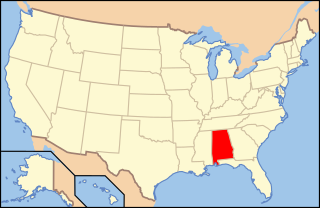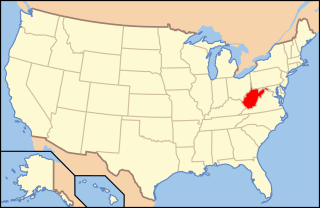| Civil Rights Uniformity Act of 2017 | |
|---|---|
| Legislative history | |
| Bill citation | H.R. 2796 |
| Bill published on | June 7, 2017 |
| Introduced by | Pete Olson [R-TX-22] |
| Summary | |
| Strict interpretation of "sex" and "gender" to refer to biological identity only for United States federal civil rights legislation | |
| Keywords | |
| transgender rights, gender identity | |
House Resolution 2796 (HR 2796, The Civil Rights Uniformity Act of 2017) is a bill in the United States House of Representatives that was introduced on June 7, 2017, by Representative Pete Olson [R-TX-22] and originally cosponsored by Reps. Brian Babin [R-TX-36], Ralph Lee Abraham [R-LA-5], and Vicky Hartzler [R-MO-4]. [1] The proposed legislation would prohibit the interpretation of the word "sex" or "gender" to include "gender identity," and would require the terms "man" or "woman" to refer exclusively to a person's biologically assigned gender in the interpretation of federal civil rights laws, federal administrative agency regulations, and federal guidance. The bill has attracted five additional cosponsors since its introduction.
According to the bill summary,
This bill prohibits the word "sex" or "gender" from being interpreted to mean "gender identity," and requires "man" or "woman" to be interpreted to refer exclusively to a person's genetic sex, for purposes determining the meaning of federal civil rights laws or related federal administrative agency regulations or guidance.
No federal civil rights law shall be interpreted to treat gender identity or transgender status as a protected class, unless it expressly designates "gender identity" or "transgender status" as a protected class.— HR 2796 Summary [1]
Rep. Pete Olson stated "The Founding Fathers never intended unelected bureaucrats in federal agencies to make sweeping changes to the definition of gender." [2]
HR 5812, a bill containing nearly identical text and co-sponsored by many of the same Representatives (in addition to Reps. Babin, Grothman, and Hartzler, HR 5812 was co-sponsored by Rep. Dave Brat [R-VA-7]), was introduced to the House on July 14, 2016, where it died in committee. [3] The National Center for Transgender Equality did not recommend any action on HR 2796, as it was also likely to die in committee. [4]
HR 2796 was introduced to the house on June 7, 2017 from the House Committee on the Judiciary. It was later referred to the United States House Judiciary Subcommittee on the Constitution and Civil Justice on July 12, 2017.
A BILL To repeal executive overreach, to clarify that the proper constitutional authority for social transformation belongs to the legislative branch.
SECTION 1. SHORT TITLE.
This Act may be cited as the “Civil Rights Uniformity Act of 2017”.
SEC. 2. CONGRESSIONAL FINDINGS AND DECLARATION OF PURPOSE.
SEC. 3. PROHIBITION OF POLICIES REDEFINING SEX TO MEAN GENDER IDENTITY.

Title IX is the most commonly used name for the federal civil rights law in the United States that was enacted as part of the Education Amendments of 1972. It prohibits sex-based discrimination in any school or any other education program that receives funding from the federal government. This is Public Law No. 92‑318, 86 Stat. 235, codified at 20 U.S.C. §§ 1681–1688.

The Civil Rights Act of 1964 is a landmark civil rights and labor law in the United States that outlaws discrimination based on race, color, religion, sex, and national origin. It prohibits unequal application of voter registration requirements, racial segregation in schools and public accommodations, and employment discrimination. The act "remains one of the most significant legislative achievements in American history".
The Employment Non-Discrimination Act (ENDA) is legislation proposed in the United States Congress that would prohibit discrimination in hiring and employment on the basis of sexual orientation or, depending on the version of the bill, gender identity, by employers with at least 15 employees.

Lesbian, gay, bisexual and transgender (LGBT) rights in the United States rank among the highest in the world, with public opinion and jurisprudence changing significantly since the late 1980s. However, LGBT rights have continued to face legal attacks from elements of the right-wing, particularly on a state level.

Peter Graham Olson is an American politician who served as the U.S. representative for Texas's 22nd congressional district from 2009 to 2021. His district included much of southern Houston, as well as most of the city's southwestern suburbs such as Katy, Pearland, and Sugar Land. He is a member of the Republican Party. On July 25, 2019, Olson announced that he would retire at the end of his term. He was succeeded by fellow Republican Troy Nehls.
In the United States, the rights of transgender people vary considerably by jurisdiction. There is a coordinated national campaign to target transgender rights. In 2021, 191 anti-LGBTQ bills were introduced, and 80 percent of them specifically sought to restrict the rights of transgender people. In 2022, over 300 anti-LGBTQ bills were introduced, of which at least 171 were anti-transgender. In 2023, over 480 anti-LGBTQ bills have been introduced as of late May. Many of these bills became law.

Lesbian, gay, bisexual, and transgender (LGBT) individuals in Alabama face legal challenges and discrimination not experienced by non-LGBTQ Alabamians. LGBTQ rights in Alabama—a Republican Party stronghold located in both the Deep South and greater Bible Belt—are limited in comparison to most other states.

Lesbian, gay, bisexual, and transgender (LGBT) people in the U.S. state of West Virginia face legal challenges not faced by non-LGBT persons. Same-sex sexual activity has been legal since 1976, and same-sex marriage has been recognized since October 2014. West Virginia statutes do not address discrimination on account of sexual orientation or gender identity; however, the U.S. Supreme Court's ruling in Bostock v. Clayton County established that employment discrimination against LGBT people is illegal.
This is a list of events in 2011 that affected LGBT rights.

Lesbian, gay, bisexual, and transgender (LGBT) people in Texas have some protections in state law but may face legal and social challenges not faced by others. Same-sex sexual activity was decriminalized in the state in 2003 by the Lawrence v. Texas ruling. On June 26, 2015, the Supreme Court of the United States ruled bans on same-sex marriage to be unconstitutional in Obergefell v. Hodges.

Lesbian, gay, bisexual, and transgender (LGBT) persons in the U.S. state of Alaska may face some legal challenges not experienced by non-LGBT Alaskans. Since 1980, same-sex sexual conduct has been allowed, and same-sex couples can marry since October 2014. The state offers few legal protections against discrimination on the basis of sexual orientation and gender identity, leaving LGBT people vulnerable to discrimination in housing and public accommodations; however, the U.S. Supreme Court's ruling in Bostock v. Clayton County established that employment discrimination against LGBT people is illegal under federal law. In addition, four Alaskan cities, Anchorage, Juneau, Sitka and Ketchikan, representing about 46% of the state population, have passed discrimination protections for housing and public accommodations.

LGBT employment discrimination in the United States is illegal under Title VII of the Civil Rights Act of 1964; employment discrimination on the basis of sexual orientation or gender identity is encompassed by the law's prohibition of employment discrimination on the basis of sex. Prior to the landmark cases Bostock v. Clayton County, Georgia and R.G. & G.R. Harris Funeral Homes Inc. v. Equal Employment Opportunity Commission (2020), employment protections for LGBT people were patchwork; several states and localities explicitly prohibit harassment and bias in employment decisions on the basis of sexual orientation and/or gender identity, although some only cover public employees. Prior to the Bostock decision, the Equal Employment Opportunity Commission (EEOC) interpreted Title VII to cover LGBT employees; the EEOC determined that transgender employees were protected under Title VII in 2012, and extended the protection to encompass sexual orientation in 2015.

Brian Philip Babin is an American dentist, politician and member of the Republican Party who has served as the U.S. representative from Texas's 36th congressional district since 2015. The district includes much of southeastern Houston, some of its eastern suburbs, as well as Orange and some more exurban areas to the east.

In the U.S. Virgin Islands, Lesbian, gay, bisexual, and transgender (LGBT) rights have evolved substantially in recent years. Same-sex sexual activity has been legal since 1985, and also provides explicit legal protections against discrimination for LGBT residents since December 2022. Following the Supreme Court's ruling in Obergefell v. Hodges on June 26, 2015, which found the denial of marriage rights to same-sex couples unconstitutional, same-sex marriage became legal in the islands.

The Equality Act is a bill in the United States Congress, that, if passed, would amend the Civil Rights Act of 1964 to prohibit discrimination on the basis of sex, sexual orientation and gender identity in employment, housing, public accommodations, education, federally funded programs, credit, and jury service. The Supreme Court's June 2020 ruling in Bostock v. Clayton County, Georgia protects gay and transgender people in matters of employment, but not in other respects. The Bostock ruling also covered the Altitude Express and Harris Funeral Homes cases.
A bathroom bill is the common name for legislation or a statute that denies access to public toilets by gender or transgender identity. Bathroom bills affect access to sex-segregated public facilities for an individual based on a determination of their sex as defined in some specific way, such as their sex as assigned at birth, their sex as listed on their birth certificate, or the sex that corresponds to their gender identity. A bathroom bill can either be inclusive or exclusive of transgender individuals, depending on the aforementioned definition of their sex. Single occupant unisex public toilets are one option to avoid this controversy.
Title IX of the United States Education Amendments of 1972 prohibits discrimination "on the basis of sex" in educational programs and activities that receive financial assistance from the federal government. The Obama administration interpreted Title IX to cover discrimination on the basis of assigned sex, gender identity, and transgender status. The Trump administration determined that the question of access to sex-segregated facilities should be left to the states and local school districts to decide. The validity of the executive's position is being tested in the federal courts.

G.G. v. Gloucester County School Board is a case dealing with transgender rights. The case involves a transgender boy attending a Virginia high school, who sued the local school board after he was forced to use girls' restrooms based on his assigned gender under the school board's policy. While the Fourth Circuit ruled in favor of the student based on Obama administration policy related to Title IX protections, the election of Donald Trump changed the underlying policy, forcing a pending hearing before the Supreme Court of the United States to be vacated and the case retried at the lower courts. Due to recent case law, including the Supreme Court decision in Bostock v. Clayton County, the Fourth Circuit ruled again in favor of the student; the Supreme Court refused to hear the case, allowing the Fourth Circuit's judgment to stand.
This article addresses the legal and regulatory history of transgender and transsexual people in the United States including case law and governmental regulatory action affecting their legal status and privileges, at the federal, state, municipal, and local level, and including military justice as well.
Bostock v. Clayton County, 590 U.S. ___ (2020), is a landmark United States Supreme Court civil rights case in which the Court held that Title VII of the Civil Rights Act of 1964 protects employees against discrimination because they are gay or transgender.